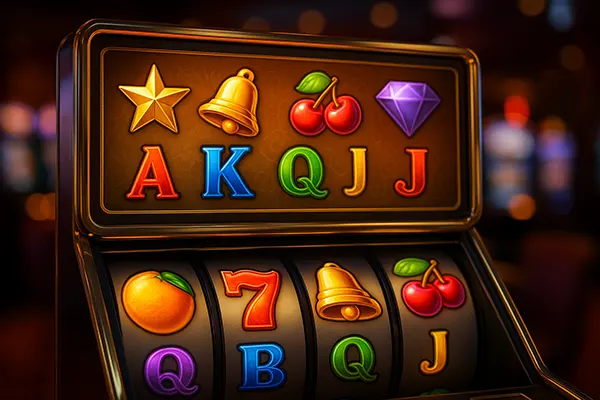
Loot Boxes in the Gaming Industry — Should They Be Treated as Gambling?
The debate around loot boxes has grown significantly in recent years, raising questions about whether these mechanics should be classified as a form of gambling. By 2025, regulators, players, and developers are still grappling with the ethical, legal, and financial implications of this feature. To understand the scope of the issue, it is important to explore the economic model behind loot boxes, their psychological impact on players, and the responses from governments and industry bodies worldwide.
The Economic Model of Loot Boxes
Loot boxes have become a common monetisation strategy across video games, ranging from mobile titles to large console releases. Developers design these systems as randomised reward packages, which players can purchase using real money or in-game currency. The unpredictability of the rewards often encourages repeated purchases, making them a significant revenue stream for game publishers.
In 2025, the global market for loot boxes is estimated to be worth billions of dollars annually. While some publishers argue that these features support the free-to-play business model, critics claim that the mechanics create an unfair advantage for those willing to spend more money. This raises questions of consumer protection, especially when young audiences are targeted.
Many experts argue that the resemblance between loot boxes and slot machines is too close to ignore. Both rely on randomised outcomes and psychological reinforcement, which can lead to compulsive spending behaviour. For this reason, many researchers now place loot boxes under the category of gambling-like mechanics.
Psychological Impact on Players
The design of loot boxes is often based on behavioural psychology principles. Variable ratio reinforcement schedules, the same used in traditional gambling, keep players engaged by providing unpredictable rewards at irregular intervals. This system creates excitement and motivates players to continue spending in the hope of receiving valuable in-game items.
Studies published between 2021 and 2024 have shown that players with higher engagement in loot box spending often display similar patterns to those at risk of gambling-related harm. In particular, adolescents and young adults are more vulnerable due to their limited financial literacy and increased susceptibility to addictive behaviours.
Concerns about mental health are also part of the discussion. Repeated exposure to gambling-like mechanics in video games may normalise such behaviours, increasing the likelihood of gambling participation later in life. This has raised alarms among public health organisations and advocacy groups worldwide.
Regulatory Approaches Around the World
By 2025, different jurisdictions have adopted varying stances on loot boxes. Some countries, such as Belgium and the Netherlands, have classified them as gambling and introduced outright bans. Other nations, including the United Kingdom and the United States, have taken more cautious approaches, favouring stricter transparency rules rather than complete prohibition.
Regulators often require developers to disclose the probability of obtaining specific items from loot boxes. While this increases transparency, critics argue that it does not eliminate the addictive nature of these systems. Instead, many believe that further regulation is needed to protect vulnerable groups, particularly underage players.
Meanwhile, international organisations, such as the World Health Organization, have emphasised the importance of recognising problematic gaming behaviours as potential health risks. This has encouraged more governments to evaluate the intersection between gaming and gambling when designing policies.
Industry Self-Regulation Efforts
Facing growing scrutiny, some major gaming companies have attempted to introduce self-regulation measures. These include voluntary age ratings, parental controls, and clearer disclosure of loot box mechanics. Companies such as Microsoft, Sony, and Nintendo have committed to enforcing rules on probability disclosures across their platforms.
However, critics argue that self-regulation may not be sufficient, as companies have a vested interest in maintaining lucrative revenue streams. Without consistent and enforceable legal standards, these voluntary efforts may lack the necessary impact to protect consumers effectively.
In addition, industry watchdogs continue to call for independent oversight. While publishers highlight their commitment to responsible monetisation, watchdogs stress that profit-driven motives often outweigh consumer protection concerns.

The Future of Loot Boxes in Gaming
Looking forward, the future of loot boxes remains uncertain. Some industry analysts predict that stricter regulations could eventually phase out randomised loot box systems, replacing them with more transparent forms of in-game purchases, such as direct cosmetic item sales or battle passes. This would provide clearer value to consumers while reducing the risk of addictive spending behaviour.
At the same time, the gaming industry faces the challenge of balancing profitability with ethical responsibility. As players demand fairer monetisation systems, developers must innovate without relying on mechanics that resemble gambling. This may lead to new economic models that prioritise player trust and long-term engagement.
By 2025, one of the central questions remains: should loot boxes be legally classified as gambling, or should they be treated as a separate category requiring unique regulation? The answer will likely vary across countries, but the global conversation continues to push the industry toward greater accountability.
What This Means for Players
For players, the ongoing debate has both risks and benefits. On one hand, increased awareness of the potential harms of loot boxes provides more information to make informed decisions about spending. On the other, inconsistent regulation between countries means that players may experience vastly different protections depending on where they live.
Parents, in particular, face the responsibility of monitoring how younger audiences interact with these mechanics. With the rise of mobile gaming and cross-platform play, loot boxes remain easily accessible to children, making parental guidance more important than ever.
Ultimately, players are at the centre of this evolving issue. As regulators, developers, and advocacy groups shape the future of loot boxes, consumer voices will play a crucial role in determining whether these mechanics are finally treated as gambling or recognised as a separate, regulated practice in gaming.
Popular
-
No-deposit casino bonuses: the restriction...
No-deposit bonuses can look straightforward: you register, …

-
No Deposit Bonuses: Conditions, Risks, and...
No deposit bonuses remain one of the …

-
How to Evaluate Slot Risk Level Using the ...
Understanding the risk profile of a slot …

